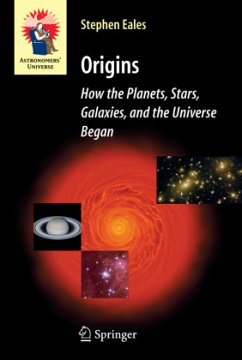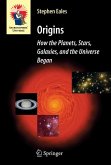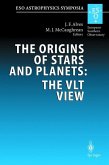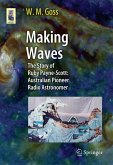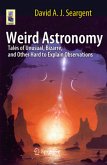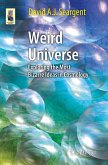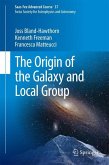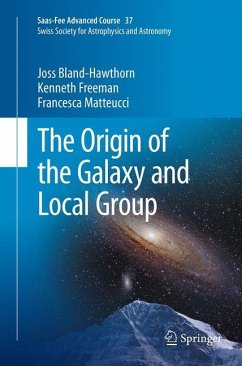In the last decade, there has been a revolution in observational astronomy, which has meant that we are very close to answering three of the four big 'origin questions', of how the planets, stars, galaxies, and the universe itself were formed. As recently as 1995 we knew of only one planetary system: our own. Now we know of over a hundred, and this knowledge has helped to reveal how planetary systems form. In this same decade, new types of telescope have allowed us to penetrate through clouds of interstellar dust to see the first moments in the life of a star, and also to see directly (not infer) what galaxies looked like thirteen billion years ago, only a billion years after the Big Bang. Because of this new knowledge, we now have provisional answers to the second and third origin question. The final question is the one we can't yet answer, but even here there have been big steps towards an answer. Within the last four years, astronomers have discovered that the universe isgeometrically flat and that its expansion is accelerating, fuelled by a mysterious dark energy. This revolution in our observational knowledge of the universe - including the first precise measurements of its age and matter and energy content - has been vital groundwork for new ideas about its origin, including the possibility that the universe originated in a larger `meta-universe'. Origin Questions describes, at an understandable and basically non-mathematical level, the origin questions and the recent steps that have been taken towards answering them.
From the reviews:
"I'm happy to say that I don't think author Stephen Eales has to worry about [falling short of achieving his goal]... . His ambitiously titled book is a sound and readable addition to the astronomy shelf. ... It's a fine reference, well indexed, and, in less than 300 pages, contains the history of the universe. For only one volume, it's a great value." (Jeff Kanipe, Sky & Telescope, August, 2007)
"Eales, an astronomer at Cardiff University in Wales, has written a survey of astronomical origins, starting with our solar system and moving ever outward to the origin of the universe. ... The book is well researched and has an affiliated Web site to help readers keep up with the rapid change in knowledge about our origins. ... A work for general readers, it could also be a good course resource for a general education astronomy class. ... Summing Up: Recommended. General readers; lower-division undergraduates." (R. A. Kolvoord, CHOICE, Vol. 44 (11), July, 2007)
"Origins, follows naturally ... discussing how things came about how we found out about them, covering the origins of planets, stars, galaxies and the Universe itself. ... Almost every aspect of astronomy is included in considerable detail and as with the previous volume there are many useful diagrams, some colour photos and amazingly low price for a quality product. ... In addition the author provides his own version of the life of a professional astronomer and its well worth reading." (Bill Barlow, Astronomy Now, June, 2007)
"Origins is a great book-it's concise, timely, and instructive. ... Origins describes the discovery of new planetary systems in the vicinity of our Sun, and the techniques that lead to a better understanding of their formation and evolution. It makes the reader familiar with new types of telescopes and observations. ... The text is kept at a fundamental and basically non-mathematical level that clearly conveys allthe physical concepts ... of today's front-line astronomy research. ... I warmly recommend this book." (Thomas Puzia, The Observatory, Vol. 127, December, 2007)
"I'm happy to say that I don't think author Stephen Eales has to worry about [falling short of achieving his goal]... . His ambitiously titled book is a sound and readable addition to the astronomy shelf. ... It's a fine reference, well indexed, and, in less than 300 pages, contains the history of the universe. For only one volume, it's a great value." (Jeff Kanipe, Sky & Telescope, August, 2007)
"Eales, an astronomer at Cardiff University in Wales, has written a survey of astronomical origins, starting with our solar system and moving ever outward to the origin of the universe. ... The book is well researched and has an affiliated Web site to help readers keep up with the rapid change in knowledge about our origins. ... A work for general readers, it could also be a good course resource for a general education astronomy class. ... Summing Up: Recommended. General readers; lower-division undergraduates." (R. A. Kolvoord, CHOICE, Vol. 44 (11), July, 2007)
"Origins, follows naturally ... discussing how things came about how we found out about them, covering the origins of planets, stars, galaxies and the Universe itself. ... Almost every aspect of astronomy is included in considerable detail and as with the previous volume there are many useful diagrams, some colour photos and amazingly low price for a quality product. ... In addition the author provides his own version of the life of a professional astronomer and its well worth reading." (Bill Barlow, Astronomy Now, June, 2007)
"Origins is a great book-it's concise, timely, and instructive. ... Origins describes the discovery of new planetary systems in the vicinity of our Sun, and the techniques that lead to a better understanding of their formation and evolution. It makes the reader familiar with new types of telescopes and observations. ... The text is kept at a fundamental and basically non-mathematical level that clearly conveys allthe physical concepts ... of today's front-line astronomy research. ... I warmly recommend this book." (Thomas Puzia, The Observatory, Vol. 127, December, 2007)

